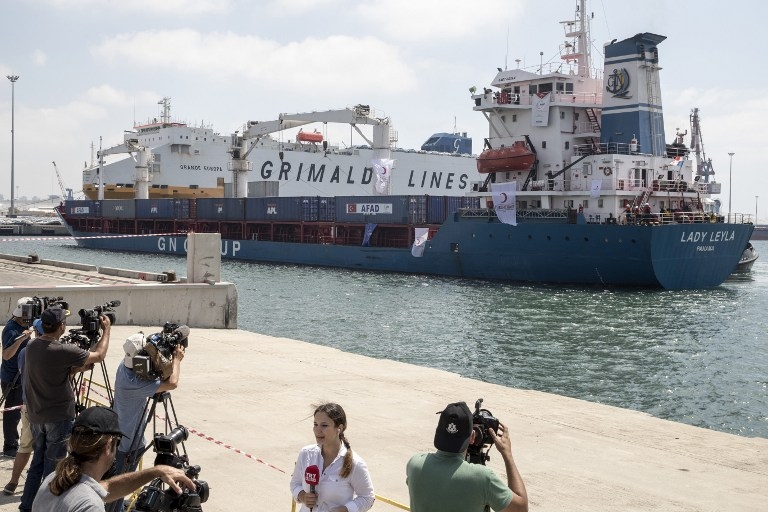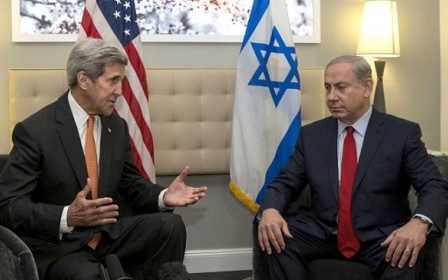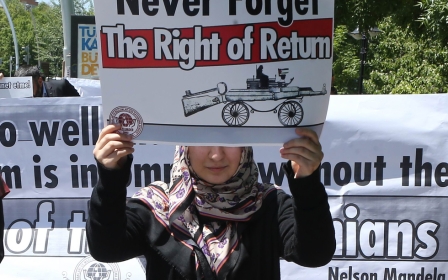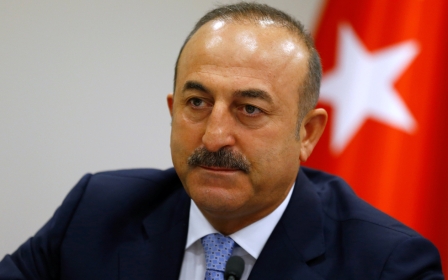The coup effect: What happens next for the Israeli-Turkish detente

The failed coup in Turkey and subsequent events are having a strong effect on Israeli-Turkish relations, namely they have put a complete freeze on the reconciliation process between the two countries.
The Turkish government is now focused on tightening its grip on society by persecuting and purging the military, intelligence and practically all other security and civilian structures of the state from its real or imaginary enemies.
Externally, President Recep Tayyip Erdogan is preoccupied in increasing its war against the Kurds and mending his relations with Russia’s Putin. His limited span of attention is excluding Israel.
“Nothing happens on our front for good and bad,” I was told by a senior source in the Israeli Ministry of Foreign Affairs.
“At least we aren’t any longer bashed by Erdogan as he used to do. And unlike the accusation levelled by the Turkish-controlled media against the US and the EU, Israel isn’t accused of any plots and involvement in the revolt."
According to the source, “the relations are on hold and the agreement is not implemented, but on the other hand, we keep getting messages from Ankara that nothing has changed and that they are committed to agreement”.
The Turkish parliament is set to vote on the deal before it goes into summer recess later this month, the country's foreign minister said on Thursday – but what happens next is anyone’s best guess.
After Mavi Marmara
More than six years after the relations between the two countries deteriorated as a result of the tragic incidents of the Mavi Marmara, representatives of the two governments signed a reconciliation agreement at the end of June 2016 in a Rome hotel.
The Mavi Marmara was a Turkish boat which carried Turkish and international “peace” activists who wanted to break the Israeli siege and reach Gaza. The ship was purchased in 2010 by IHH, a Turkish NGO active as a charity organisation in more than 115 countries.
But Israeli intelligence sources claimed that IHH smuggled weapons on behalf of terrorist groups and had links to al-Qaeda. In 2010, the US State Department expressed great concern over the group's links with senior Hamas officials.
In May 2010, while sailing on international waters enroute to Gaza, the boat was stopped by the Israeli navy.
For Israel, most of the passengers were terrorists or at least agents of provocation who were equipped with clubs, chains, and bats and came to cause trouble, not humanitarians. The clashes resulted in the death of nine Turkish citizens and the humiliation of one of Israel’s top commando units – Flotilla 13.
Turkish needs
The reconciliation agreement contains diplomatic, economic and security-related topics. The most annoying clause from the Israeli side is the readiness is to pay $20m to the Turkish families of the victims.
Just for the perspective, Israel reluctantly paid relatively less to the victims’ families of the USS Liberty, a spy ship of the US’s National Security Agency which sailed near the Sinai Peninsula coastline during the 1967 war. The Israeli Air Force mistook the Liberty for an enemy ship, attacked it and killed 34 crewmen.
However, Turkey needed the agreement much more than Israel did.
Erdogan’s foreign and security policies have failed completely since the bloody civil war in Syria began more than five years ago. He announced that his policy would revolve around “zero” troubles with his neighbours. Exactly the opposite has characterised it: Turkey has found itself in disputes with the Basher Assad regime in Syria and with Russia, Iran, the Islamic State and Kurds at home and in Syria.
Israeli demands
Thus, the new deal contains some positive elements and advantages for Israel.
Turkey bent to Israeli pressure and agreed to shut down an office established by Izz A-Din Qassam, the military wing of Hamas. From this office in Istanbul, as Israeli intelligence officials would later disclose in a briefing, Hamas operatives had issued orders, sent money and ran terror operatives in the occupied West Bank against Israel and the Palestinian Authority (PA).
In 2015, the Israel Security Agency (ISA also known as Shin Bet) foiled a few attempts of these kinds, the largest almost a year ago, when dozens of Hamas members were arrested and caches of weapons found.
The orders were given personally by Salah al-Aruri, the Turkey-based Hamas commander who benefited from the personal protection of Hakan Fidan, the chief of Turkey’s National Intelligence Organisation (MIT).
To the agony of Fidan, Erdogan gave orders to expel Aruri already a few months ago. Fidan doesn’t like Israel. Over the past six years, he tried to avoid meeting his Mossad counterparts. He seldom met Tamir Pardo, the former director of Mossad, and his successor, Yossi Cohen, and reduced the links between the two agencies to the minimum.
Mossad suspected that Fidan was pro-Iranian and American intelligence sources accused him of informing Iran about an Israeli espionage ring operating on Iranian soil. As a result, Iranian citizens were arrested.
Another important success for the Israeli government is the fact that the siege of Gaza has not been lifted. Unlike Erdogan’s claims and boasts, Turkish humanitarian aid to Gaza will be sent via the Israeli port of Ashdod.
There it will be inspected, making sure that indeed it is only humanitarian in nature – food, medications, toys – and transported by Israeli trucks like all supplies to Gaza. One such shipment was sent by Turkey after the Rome agreement and days before the military rebellion.
There are also other security benefits for Israel which have been ignored or barely reported. The Turkish parliament, for example, will pass laws that prohibit the suing of Israeli officers and officials involved in the Marmara incident in Turkish courts. In recent years, a few Turkish courts issued warrants against senior Israeli officers.
Turkey has also promised not to oppose the inclusion of Israel in NATO events and in other international forums.
Historic intelligence ties
The special security and intelligence ties between the two countries began in the second half of the 1950s. Encourage by the US and the UK, the intelligence communities of Israel (Mossad), Iran (Savak) and Turkey (MIT) established a tripartite consultative body known as the Trident alliance.
The intelligence chiefs of the three services met annually and exchanged information on common enemies – Egypt, Syria and Iraq. The relations reached their peak in the 1950s, with Iran's involvement ending after the country's 1979 revolution. Israeli-Turkish intelligence sharing continued through the first decade of the 21st century, peaking in the mid-2000s and ending when Erdogan walked away.
Turkey became an important market worth several billion dollars for Israeli military and security goods. Israeli security corporations sold drones, intelligence equipment and upgraded fighter planes and tanks for the Turkish army.
Turkey also fed Israel with information which it had obtained about Syria, Iraq and, to certain degree, Iran from its spies and listening posts built by the US. In return, Turkey asked for and got information obtained by Israeli intelligence on Kurdish organisations especially the PKK.
Mossad officials met regularly with their MIT colleagues either in Ankara or Istanbul or in Tel Aviv. During some of these sessions, senior MIT officials in charge of monitoring the PKK even felt at ease and close enough to ask their Israeli counterparts if they would be willing to help them to assassinate Kurdish terrorists. The Israelis listened politely, usually didn’t comment and ignored the requests.
It all ended when then Turkish prime minister, now president, Erdogan changed the course of Turkish foreign policy and orientation.
It is clear to Israeli security officials that when the new agreement is implemented, the golden era of close, even intimate military and intelligence cooperation between Israel and Turkey, will not return.
- Yossi Melman is an Israeli security and intelligence commentator and co-author of Spies Against Armageddon.
The views expressed in this article belong to the author and do not necessarily reflect the editorial policy of Middle East Eye.
Photo: Journalists and reporters gather at the Israeli southern port of Ashdod as Lady Leyla, a humanitarian aid ship sent from Turkey to the Gaza Strip, arrives to the port on 3 July 2016 (AFP)
This article is available in French on Middle East Eye French edition.
Middle East Eye propose une couverture et une analyse indépendantes et incomparables du Moyen-Orient, de l’Afrique du Nord et d’autres régions du monde. Pour en savoir plus sur la reprise de ce contenu et les frais qui s’appliquent, veuillez remplir ce formulaire [en anglais]. Pour en savoir plus sur MEE, cliquez ici [en anglais].





